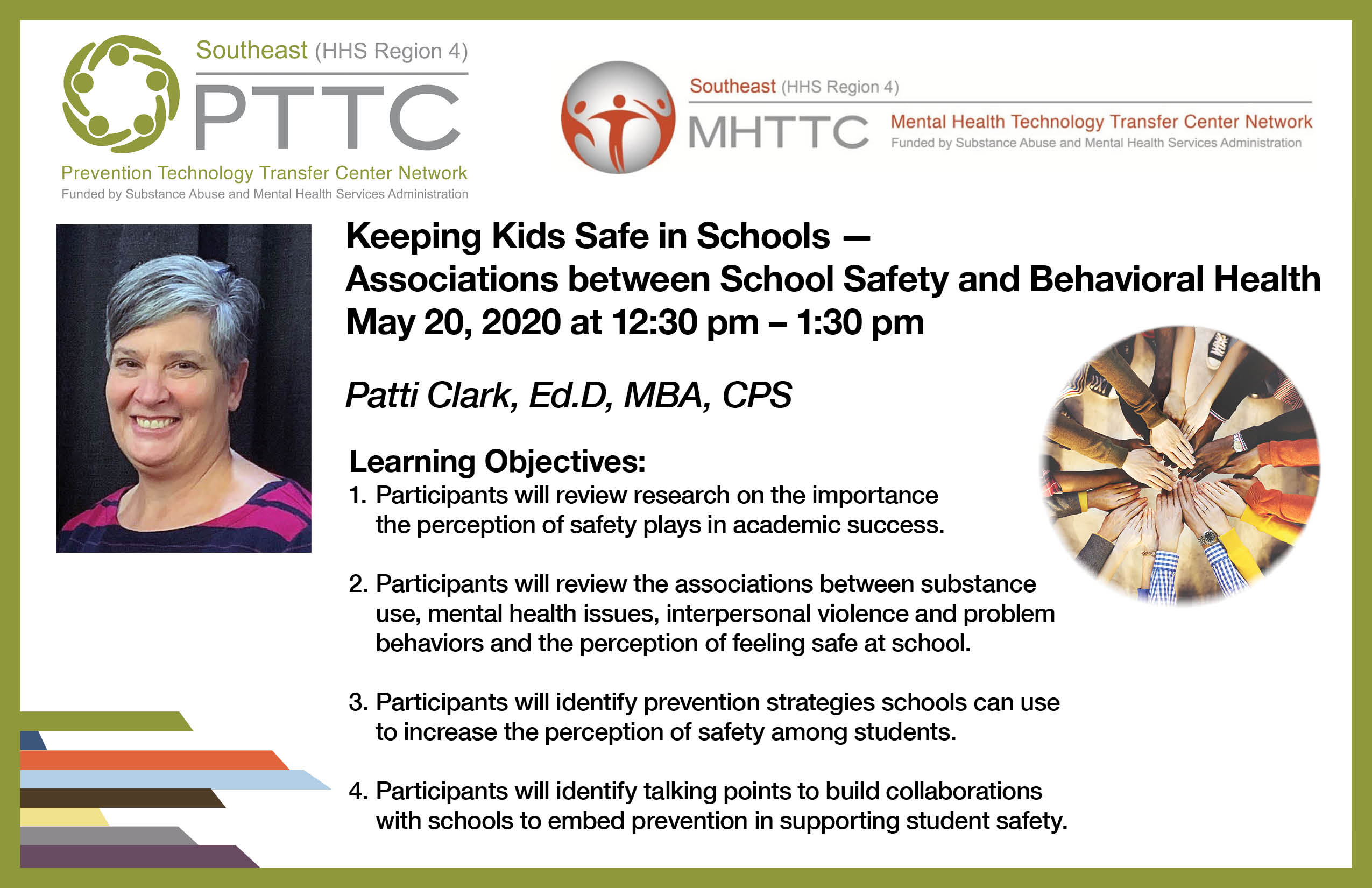School safety is at the forefront of educators’ minds in light of recent high profile school shootings. Academic achievement and social thriving are reduced when students don’t perceive they are safe. Research shows that the perception of safety is a better predictor of student success than the presence of physical safety measures. Feeling safe in school is necessary for learning, and for physical, emotional and social development. Students who use substances are more likely to report their school is unsafe and to be fearful at school. However, schools don’t always include prevention strategies as a component of their school safety plans. Prevention professionals play an important role in educating schools on the role of behavioral health issues in the perception of school safety, and supporting the inclusion of prevention education to students and their parents, and the implementation of policies and procedures that create a pathway for connecting students to appropriate resources. In this webinar, participants will learn about the findings from a recent Kentucky study that looked at the association between substance use, mental health issues, interpersonal violence, and problem behaviors and the perception of safety of students. We will review specific prevention strategies that schools should consider, and will provide talking points to create dialogue with educational systems around the inclusions of behavioral health prevention components in school safety plans.
Dr. Patti Clark is the Program Manager of the Prevention and Promotion Branch within the Kentucky Cabinet for Health and Family Services, Department of Behavioral Health, Developmental and Intellectual Disabilities. She is the Project Director and Principal Investigator for Kentucky’s Partnership for Success 2015 grant, a five-year SAMHSA-funded grant focused on substance use prevention for youth ages 12-25. She also served as the Kentucky State Suicide Prevention Coordinator and Principal Investigator for the Kentucky Initiatives for Zero Suicides and was Project Director for the state’s Suicide Prevention Efforts for Adolescents in Kentucky, both Garrett Lee Smith funded suicide prevention projects.
Dr. Clark provides training and technical assistance to prevention providers in Kentucky, with focused efforts on substance use and suicide prevention, integration/collaboration with other sectors through shared risk and protective factors (bullying, sexual assault, violence), needs assessment, capacity building and strategic planning for state-and community-level prevention implementation. She was co-team leader for Kentucky’s SMVF Suicide Implementation team and co-created Kentucky’s military immersion training, Operation Immersion.
Previously she was the Associate Coordinator of the Southeast Resource Team of the Center for the Application of Prevention Technologies, a SAMHSA-funded training and technical assistance provider to state-level behavioral health grantees. She served 10 states and 2 jurisdictions in the Southeast Region (Alabama, Florida, Georgia, Kentucky, Mississippi, North Carolina, Puerto Rico, South Carolina, Tennessee, Virginia, Virgin Islands, and Washington D.C.) focusing on Florida, Georgia and Kentucky.
Dr. Clark began her prevention career a project coordinator for Kentucky’s Underage Drinking Strategic Prevention Framework (SPF) project in Owen County, Kentucky where binge drinking among high school youth was reduced by 36% over a two-year period. She is a former newspaper publisher and brings a 20-year career of managing community newspapers to the prevention field.
She has a doctorate in leadership and policy studies from Eastern Kentucky University, an MBA from Sullivan University, and a bachelor’s in journalism from Eastern Kentucky University.
